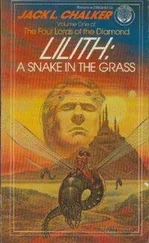“If you’re afraid of the dark, remember the night rainbow.
If there is no happy ending, make one out of cookie dough.”
— COOPER EDENS
Way out in a puzzling universe known as the suburbs, Bob Coffen rides his bike to work. He pedals and pants and perspires past all the strip malls, ripe with knockoff shoe stores, chain restaurants, emporiums stuffed with the latest gadgets, and watering holes deep enough that the locals can drown their sorrows in booze. Each plaza also contains at least one church, temple, or synagogue — a different way altogether to drown one’s sorrows.
After arriving at the office, Coffen hightails it to the bathroom and wildly paper-towels away the pond of sweat from his crack. He works an unfortunate bundle in the back of his unzipped pants with such fury that the flab above Bob’s belt shimmies in a kind of unintentional hula. He splashes water on his face, fixes his tie. He is overdressed and overheated and ready to slog through the stupor of another day at Dumper Games.
Bob plops down at his desk for only a few minutes before the head honcho of the company, Mister Malcolm Dumper himself, walks up, holding something behind his back. Dumper is only thirty, almost ten full years younger than Bob. He comes from family money (his grandfather was a Canadian oil tycoon). To show his north-of-the-border allegiances, Dumper always wears a throwback hockey sweater to work, Wayne Gretzky’s #99 Edmonton Oilers jersey. To make matters worse, Dumper refers to himself as “the Great One,” which was Gretzky’s nickname on the ice.
But the most striking thing about Dumper is his tongue, thick and long, almost the size of a hot water bottle — when he focuses on ideas, crunching around their strengths and weaknesses, the floppy thing sort of lolls out front of his mouth.
“Do you know what today is?” Dumper asks Bob.
Coffen genuinely has no idea. “What is today?”
“The Great One would not forget such a momentous milestone,” Dumper says. “Today is a fine wine. Today is an aged Bordeaux from the Left Bank.”
“What’s the occasion?” Bob says.
“It’s your anniversary.” Dumper pulls a wrapped present from behind his back and extends it to Coffen. “I would never forget what today means to this company because I would never forget what you mean to our little shop here, Bob. Congratulations on a decade of good times and good games, and our future together is as bright as a miner’s helmet.”
Bob takes the rectangular gift from him, surprised by how heavy it is. Surprised by the venomous burn going on in his heart— I’ve been here for ten years?
“Go on and open it, amigo,” says Dumper. Coffen tears through the wrapping paper and stares at it for a few seconds. It’s some sort of bulky wooden clock. He has no idea what to say and goes with, “Wow, I’m so honored by this unique timepiece.”
“It’s a plock. Half-plaque, half-clock. I named it myself.”
On the face of the plock is engraved DEAR ROBERT COFFEN: IT’S ALWAYS TIME TO WORK!
The clock hands are not moving, fixed at midnight.
Bob frowns at the plock, and Dumper must notice his sourpuss face because he asks, “Don’t you like it?”
“My name’s not Robert.”
“Bob is short for Robert. Everybody knows that.”
“Sometimes, yes,” Coffen says, “but I’m only Bob. On my birth certificate, it reads ‘Bob Coffen.’”
At this, Dumper’s frown gets even bigger than Bob’s, the boss’s humungous tongue creeping out and hanging there. After about ten seconds, he reels the lanky muscle back in and says, “Nobody’s name is just Bob.”
Coffen shrugs and says, “Bob is me.”
“But besides this miniscule blip, the gist of the company’s heartfelt sentiments remains the same. Robert … Bob … we at DG value all your effort to build games.”
Bob wonders if a plock is the equivalent of giving a condemned man a final cigarette before the firing squad. He doesn’t want to ponder all the wasted time, tries to distract himself with a task, turning the tragic contraption over in his hands, looking for a battery hatch or a way to plug it in to a power source. “How does the clock half work?”
“It doesn’t,” Dumper says.
“It’s broken?”
“It’s purely decorative.”
Bob wants so much to tell his boss that he quits, but it comes out like this: “Thanks.”
“We’ll get your name right on the next one.”
“Something to look forward to,” says Coffen, speaking at a whisper.
Dumper shakes his head and storms off, muttering, “Nobody’s only named Bob.”
Alone, Coffen spends the rest of the day sitting right like that, not doing one lick of work. He holds the heavy plock and watches how its hands never move. Always midnight. No way to document any of the expiring minutes, but damn if they aren’t all disappearing.
A despicable truth about the human animal
Bob’s bike ride home that evening starts off much like the morning one. He is sweaty. Annoyed. He pedals past a billboard advertising Björn the Bereft, a magician/marriage counselor performing a few shows in town on his national tour. Coffen scowls at the billboard, knowing he and Jane will be catching the act this coming Friday. Actually, it didn’t sound like the kind of thing that Jane would want to do in the first place, but she had been so insistent, Coffen went along with it — of course he went along with it! Isn’t his fat ass oozed all over a bicycle seat because Jane wanted him to ride it, whip himself back into shape?
Coffen’s not on the bicycle by himself: There’s a corporate rucksack slung across his chest diagonally, the bandoleer of the working stiff. It pushes twenty pounds tonight because of the weighty plock.
He pedals and pants and perspires, turning onto a quiet stretch of residential road, riding in the bike lane, next to tall oleanders that line this street. His subdivision, his house, his wife, his kids, his computer and online life are only another half mile ahead.
Here’s where Coffen’s archenemy, Nicholas Schumann, pulls up next to Bob and his bike. Schumann slows his SUV, revs the engine, rolling down the passenger window so he can scream out at Coffen, “Shall we engage in a friendly test of masculine fortitude?”
Schumann is a douche of such a pungently competitive variety that he carries a picture of himself wearing his college football uniform in his wallet. And shows it to people. Bob will be huddled with the other dads of the subdivision at one barbecue or another and Schumann will whip out the photo and talk about how he single-handedly guided Purdue to an overtime win against the Fighting Irish of Notre Dame and how nobody thought they had a chance, but as the quarterback he had to keep his team focused, poised, grinding, etc., etc. All the neighborhood fathers hang on Schumann’s probably fabricated remixes from his glory days. He has these dads trained to sniff out Bob’s lack of interest in sports and has even said things in front of them like “Gentlemen, it appears that Coffen doesn’t enjoy the great American pastime of pigskin.”
They shake their astonished heads. Their eyes eyeing Bob like he pissed in the damn sangria.
“You really don’t like the pastime of pigskin?” the disgusted dads ask.
“Football’s fine,” says Bob.
“Football is like storming the beaches of Normandy,” Schumann says, the dads all nodding along. “It is a bunch of samurai let loose on the field to kill or be killed.”
“I give up,” Coffen mutters.
“That’s your problem,” says Schumann. “You can’t give up. Not when Notre Dame’s linebackers are blitzing your back side. Believe me, that’s a life lesson.”
Читать дальше












